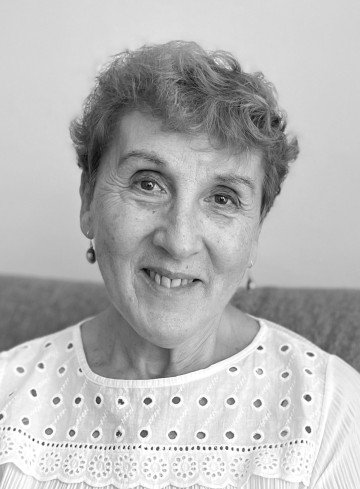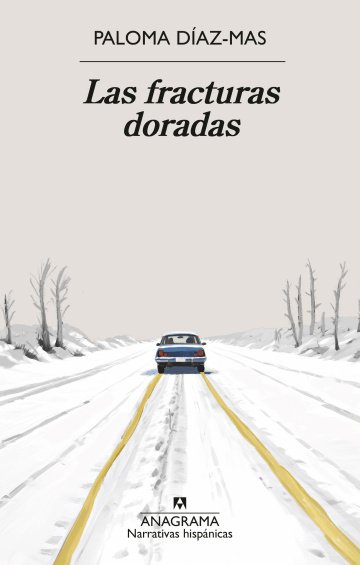| PAGES | 168 |
| SERIES | Narrativas hispánicas |
| PUBLICATION | 05/10/2016 |

SERIES:Narrativas hispánicas
«Many afternoons I come here, walk through the gate, cross the little garden and enter the building of the old-age home where my mother lives, that woman who no longer knows that I’m her daughter. She’s usually pleased to see me: she guesses that I’m someone important to her, although she can’t remember how. She’s forgotten me, just like she’s forgotten most of her own life. She seems confused. You might think it’s impossible to communicate with her. But in these afternoons when we sit together a new relationship has started to form between us. Her irrationality has opened the door to a new life. In the midst of her forgetting, sometimes old names emerge from the shadows, words that provoke memories of things that happened to us, of memories shared. And those small gusts from the past mean that I also remember many things that I had forgotten. The things we forget unite us, because her lack of memory stimulates my memory, drawing me into my past to recover lost experiences.Thanks to that woman, who has almost lost touch with her life, I’ve begun to recover my own story and that of a country that no longer exists: our own».
With a focussed and subtle gaze and an emotion stripped of affectations, Paloma Díaz-Mas explores the connections between two stories and two pasts (the family and the collective, the political and the personal), which she reflects upon through objects, stories and memories. Facing the painful realization of the loss of memory, Lo que olvidamos –which is honest, truthful and absorbing– shows a commitment to recover it, re-evaluate it and restore it, and it does so with talent, energy and solidity, confirming the enthusiastic response that Paloma Díaz-Mas’s career has provoked until now: «Díaz-Mas is an extraordinary writer, reading her is always a pleasure» (Adolfo García Ortega, El Norte de Castilla); «It would be impossible to imagine a novel by Paloma Díaz-Mas without conceptual richness and stylish elegance; it is writing for all those who love literature» (Leer); «She discovers new territories with every novel» (William R. Risley, World Literature Today); «A true mastery of the art of storytelling» (Iñaki Ezquerra, El Correo Español).
«From the first sentence, to the last, in Lo que olvidamos we become the eyes, the voice and the pain of a daughter facing the collapse of her own mother… Step by step we descend into a hell without hope or ambition. As terrifying as it is tender, compassionate, warm, brutal… a brief book driven by tremendous intensity. Written without concessions, emotive in its portrayal of tenderness and of careless embraces … Written with the vision of an artist who brings to life a building that is collapsing behind its façade» (Carlos Zanon, Babelia, El País).
«Díaz-Mas gives creative depth to a succinct story that hides a coming of age novel. Lo que olvidamos provides a cordial and intense narration, free of useless artifice, accessible and emotional» (Santos Sanz Villanueva, El Cultural, El Mundo).
«Facing the collapse of her mother within herself, the narrator journeys to the root of her memories to discover that her own recollection has been wiped and transfigured, and that we are all not just what we remember, but also that which we forget. An amazing and unforgettable book» (Domingo Ródenas, El Periódico).
| PAGES | 168 |
| SERIES | Narrativas hispánicas |
| PUBLICATION | 05/10/2016 |


Paloma Díaz-Mas (Madrid, 1954) is a research professor at the Consejo Superior de Investigaciones Científicas (CSIC) and was for eighteen years professor of literature at the University of the País Vasco. She has published studies of oral and Romance literature, Medieval Spanish literatureand Sephardi culture. At the age of only nineteen she published her first book of short stories (recently re-published as an E-book under the title Ilustres desconocidos). At Anagrama she haspublished the novels El rapto del Santo Grial (runner-up for the 1st Premio Herralde de Novela 1983), El sueño de Venecia (Premio Herralde de Novela 1992) and La tierra fértil (Premio Euskadi 2000 and runner-up for the Premio de la Crítica); the book of stories Nuestro milenio (1987), the autobiographical tales Una ciudad llamada Eugenio (1992) and Como un libro cerrado (2005). She also worked on two collections of stories edited by Laura Freixas, Madres e hijas (2002) and Cuentos de amigas (2009).





